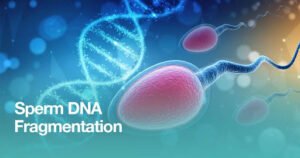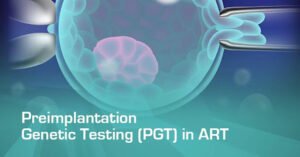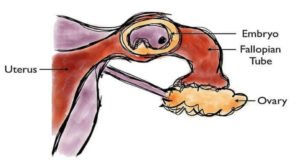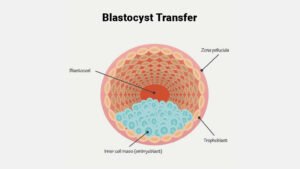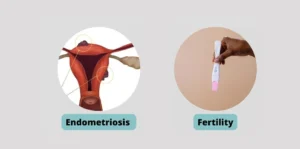Where is Preimplantation Genetic Diagnosis (PGD) Indicated?

Preimplantation genetic diagnosis (PGD) is a technique used to diagnose the genetic disorder in embryos produced outside the womb. PGD can identify those embryos which are affected, unaffected, or a carrier for the particular disease.
Preimplantation genetic diagnosis (PGD) starts with the process of in vitro fertilization (IVF) in which Oocyte collection and fertilization is done in the laboratory. After 3-5 days, the embryos will divide into multiple cells. Then a couple of cells are taken out with the help of fine glass needle from the embryos to check for any kind genetic abnormality. After PGD analysis, if selected embryos are free from genetic problems, then only it is placed inside the uterus.
The technique was developed as a substitute to diminish the transmission of severe genetic diseases in offspring. It is helpful for those couples who have a high-risk of the genetic disorder. PGD testing is indicated when the patient has:
- Family history or Presence of any genetic disorders
- Persistent IVF Failure
- Maternal Age
- Frequent Pregnancy Loss
Family history of genetic disorders
The genetic disorder often runs in the family history from generation to generation. Pre-implantation Genetic Diagnosis (PGD) helps to avoid the genetic disorder transmission to the child. Genetic problems like Cystic fibrosis, Huntington’s disease, muscular dystrophy, Tay-Sachs disease, sickle cell anemia, can be detected with the help of PGD technique. With the help of Pre-implantation Genetic Screening (PGS), unaffected embryos are transferred into the mother’s uterus.
Persistent IVF Failure
After multiple IVF cycles if no pregnancy occurs then there is a risk of the irregular chromosomal disorder. Morphologically fine embryos often appear normal but may be chromosomally anomalous. Pre-implantation Genetic Screening (PGS) screens the normal embryo may be transferred to the uterus to have a healthy and successful pregnancy.
Maternal Age:
The risk of Chromosome genetic abnormality increases with the maternal age. When a woman is born, her ovaries have millions of eggs. With the age, the quality and number of egg deprived and by the time women reach to menopause all eggs are almost gone. Older women have lower quality eggs so there is a chance to have an abnormal embryo. In advanced maternal age, there are fewer pregnancy rates with more chances of miscarriages. An abnormal embryo is an aneuploid (An extra or missing chromosome) for example Down syndrome (Trisomy 21) has an additional copy of chromosome 21. Such risk occurs when a woman reaches the age of 35 and above.PGS helps to diminish the risk of miscarriage & helps to raise a chance for pregnancy.
Frequent Pregnancy Loss
The recurring fetal Loss is due to the following reasons:
- Chromosomal structural abnormalities
- Coagulation Disorders, Autoimmune, Endocrine, Metabolic Disorders and abnormality of the uterus
- Unexplained Loss of fetus
In case of Chromosomal structural abnormalities, there are more miscarriages because of embryo made of abnormal chromosomes. So, in that case, options are to use donor eggs or sperm to replace the abnormality using PGS with IVF.
Recurrent Pregnancy loss can be identified by the potential causes. And once the abnormality is identified, a possible treatment can be used to treat abnormality. Medical rehabilitation is required to treat endocrine, autoimmune, or metabolic diseases whereas the surgical process can be done to correct a uterine malfunction.
Couples with unexplained fetal loss have a propensity to have chromosomally abnormal embryos. Through PGS chromosomally normal embryo can be selected for implantation which also reduces the miscarriage rate and can raise the birth rate.






